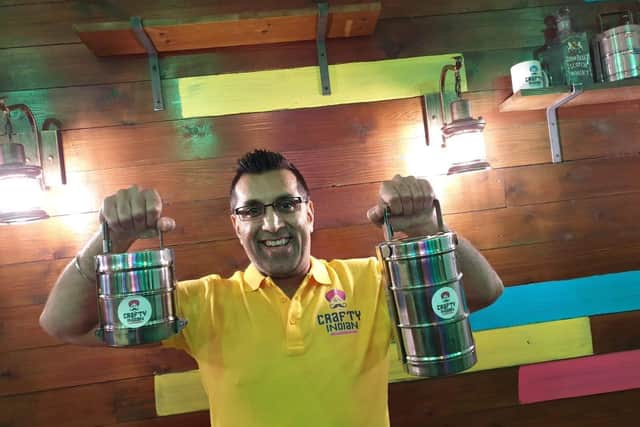My Indian street food venue is leading the way in the war on plastic waste- Harry Khinda
I don’t think anyone could fail to be moved by the plight of turtles and other sea creatures choking on plastic bags and discarded rubbish. But, as the owner of an Indian street food venue, selling takeaway food, I had an even bigger wake-up call coming.
I felt a great sense of guilt for our whole sector, to read that plastic items from takeaway food and drink dominate the litter in the world’s oceans. Recent scientific studies found that single-use bags, plastic bottles, food containers and wrappers were the four most widespread pollutants, making up almost half of the human-made waste.
Advertisement
Hide AdAdvertisement
Hide AdThis has to stop. It’s the future of our planet and the next generations at stake. That’s why we’re now on a mission to do our bit.


I can already hear fellow venue owners saying: “But what can we do?” and arguing that they can’t afford to change. But there is actually a simple solution that literally doesn’t have to cost the earth.
At The Crafty Indian we’ve introduced reusable stainless steel tiffins for our takeaways and have already managed to prevent 20,000 plastic containers and 4,000 bags a year from blighting the environment. That’s around 50,000 pieces of single-use plastic kept out of landfill since we introduced the scheme just over two years ago.
While we’re proud to be leading the way on this crucial issue, our next quest is to increase the impact by encouraging other food venues to get involved.
Advertisement
Hide AdAdvertisement
Hide AdSo far we’ve sold around 600 tiffins and this number increases by three to four each week, which means our plastic use is reducing weekly at that rate. Even based on these early numbers, if you multiply it over ten years, just look how much less plastic will go into the environment from our venue alone.
If all takeaways and restaurants in Bradford followed suit, imagine the amount of plastic waste involved. Then multiply that by venues up and down the country and it’s clear how big this could get.
When we first decided to take a stand, we had a think about how we could change our ways. This led us on a journey back in history and we realised the answer was staring us in the face.
My family originates from Punjab where Indians have used steel tiffins to carry their food to work for generations. I was inspired by my dad’s old tiffin, which he brought with him when they settled here during the 1960s. My dad, Gian Singh, still used his tiffin to carry lunch to work at the Hepworth and Grandage factory in Bradford, back then.
Advertisement
Hide AdAdvertisement
Hide AdThe tiffins, sourced mainly from India, are three-tiered, with room for a few meals or courses, and have a carry handle, so there’s no need for a plastic bag. They keep the food hot until you get home, so there’s no need for reheating.
Here’s how the planet wins, and no-one really pays a price. The customer buys their tiffin from us, but then, each time they use it to collect a takeaway, they get 10 per cent discount on their meal, so it soon pays for itself and, eventually, they’re in credit.
Your venue gains, not just reputationally because you’re meeting your corporate responsibilities, but also by generating customer loyalty.
About a quarter of our regulars are now using tiffins, but this is still a journey we’re on. We’re making great progress and eventually we’d like all our takeaways to be served in this way so we can become fully sustainable.
By Harry Khinda - Owner of The Crafty Indian in Bradford
